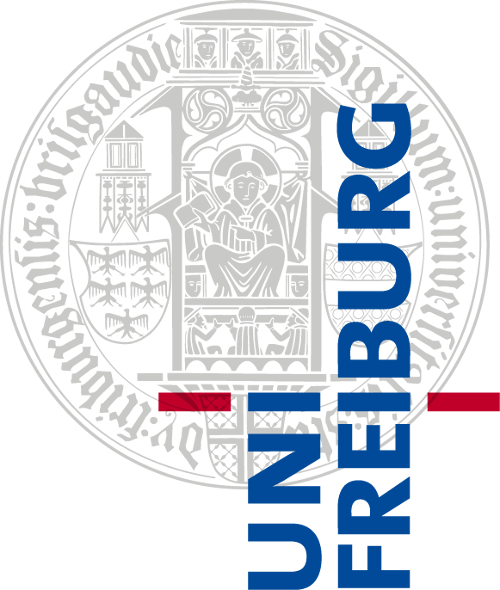Arming CRISPR/Cas systems with an enzyme that also controls the translation of genetic information into protein

Photo by Dominik Kopp
CRISPR/Cas systems are known as promising “gene scissors” in the genome editing of plants, animals, and microorganisms by targeting specific regions in their DNA – and perhaps they can even be used to correct genetic defects. A team of scientists led by Juliane Behler and Prof. Dr. Wolfgang Hess from the University of Freiburg have now identified an enzyme, a special pair of RNA scissors, which is involved in CRISPR/Cas systems and the correct regulation of gene expression – in other words, in reading genes and translating their information into proteins. The researchers have published their work in the scientific journal Nature Microbiology.
Show more.
Natural CRISPR/Cas systems can be found in most bacteria and archaea, where they form a microbial immune system with which these organisms can defend themselves against viral intruders. In order for this line of defense to work, a long RNA molecule must first be cut into smaller units. An enzyme is therefore used as a pair of RNA scissors to cut the RNA molecule and “arm” the system. Natural CRISPR/Cas systems often function autonomously: They can be exchanged between different bacteria quickly, and they are not dependent on other proteins in their host cells. An exception to this can be found in the popular CRISPR/Cas9 systems, in which the host enzyme RNase III acts as RNA scissors.
The scientists from the University of Freiburg, who are studying CRISPR/Cas systems, have now demonstrated that the enzyme RNase E acts as RNA scissors in the CRISPR/Cas systems of cyanobacteria. This enzyme is very common, and it can be found not only in photosynthetic cyanobacteria, but also in pathogenic bacteria and plant chloroplasts. It is an important factor for the correct regulation of gene expression within all these groups of organisms. What was not known until now, however, was that it also plays a role in CRISPR/Cas systems.
The team’s research shows that the interaction of CRISPR/Cas systems with the cellular mechanisms of their host organisms is stronger than previously suspected, meaning there could be greater potential for the use of such systems.
Funding for the team’s research came from the Deutsche Forschungsgemeinschaft (German Research Foundation) as part of a grant for the research group Forschergruppe FOR1680: Unravelling the Immune System. Wolfgang Hess is currently a fellow at the Freiburg Institute for Advanced Studies (FRIAS) at the University of Freiburg.
Original Publication:
Juliane Behler, Kundan Sharma, Viktoria Reimann, Annegret Wilde, Henning Urlaub, and Wolfgang R. Hess (2018): The host-encoded RNase E endonuclease as the crRNA maturation enzyme in a CRISPR–Cas subtype III-Bv system. Nature Microbiology. doi: 10. 1038/s41564-017-0103-5
Contact:
Prof. Dr. Wolfgang Hess
Institute of Biology III
University of Freiburg
Phone: +49 (0)761 / 203-2796
E-Mail: wolfgang.hess@biologie.uni-freiburg.de
Show less.
Institute of Biology 3
University of Freiburg
Schänzlestraße 1
79104 Freiburg, Germany
Director
Prof. Dr. Wolfgang HessTel.: 0761-203-2796
Fax: 0761-203-2601
e-Mail: wolfgang.hess@biologie.uni-freiburg.de
Vice-Director
Prof. Dr. Wolfgang SchamelTel.: 0761-203-67511
e-Mail: wolfgang.schamel@biologie.uni-freiburg.de
Administration
Academic Director
Karsten VoigtTel.: 0761-203-6975
e-Mail: voigt@bio.uni-freiburg.de
Office
Diane KaltenbachTel.: 0761-203-2741
e-Mail: kaltenbach@biologie.uni-freiburg.de
Karin Laubenberger
Tel.: 0761-203-2742
e-Mail: karin.laubenberger@biologie.uni-freiburg.de
Marina Heitzmann
Tel.: 0761-203-2731
e-Mail: heitzmann@biologie.uni-freiburg.de
IT-Office
Edith AmsÉric Antoine
Tel.: 0761-203-2759
e-Mail: it.bio@biologie.uni-freiburg.de
Research groups
Prof. Dr. Ralf Baumeister
Prof. Dr. Ilka Diester
Dr. Gina Fiala
Jun Prof. Dr. Sjon Hartman
Prof. Dr. Wolfgang R. Hess
Prof. Dr. Maja Köhn
Prof. Dr. Thomas Laux
Prof. Dr. Christian Leibold
Prof. Dr. Björn Lillemeier
Prof. Dr. Carsten Mehring
Prof. Dr. Susana Minguet GarcÍa
Prof. Dr. Michael Reth
Prof. Dr. Stefan Rotter
Prof. Dr. Wolfgang Schamel
Dr. Ekkehard Schulze
Dr. Claudia Steglich
Prof. Dr. Annegret Wilde
Retired and former members
Prof. Dr. Ad Aertsen
Prof. Dr. C. Bresch
Dr. P. Emschermann
Dr. R. Gross
Prof. Dr. Günter Feix
Prof. Dr. Karl-Friedrich Fischbach
Prof. Dr. R. Hausmann
Prof. Dr. R. Hertel
Prof. Dr. K. Hilse
Dr. Gabor Igloi
Dr. W. Michalke
Dr. M. Neumann
Prof. Dr. Edward Pearce
Prof. Dr. Bodo Rak
Prof. Dr. Albrecht E. Sippel










